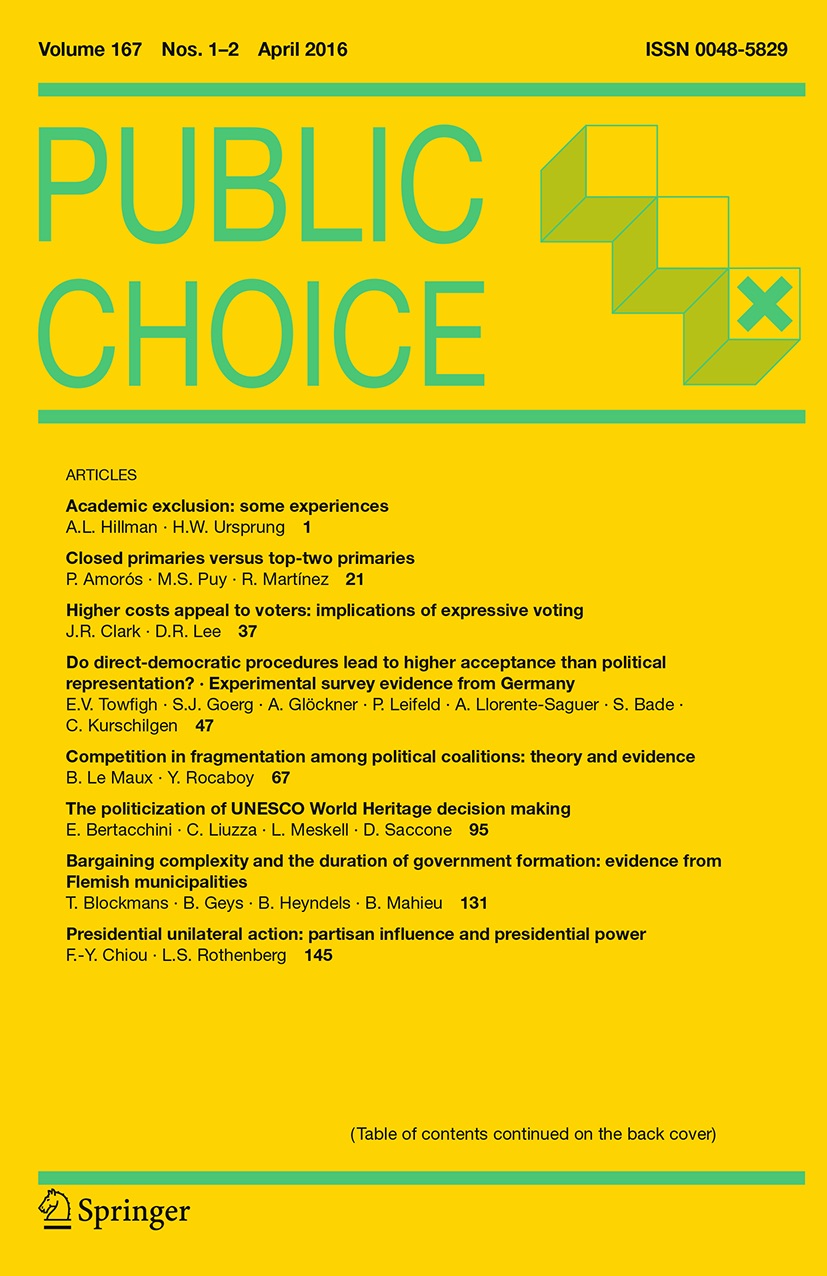Public Choice, vol. 167 (2016), issue 1-2, pp. 47-65
joint work with Sebastian Goerg, Andreas Glöckner, Philip Leifeld, Aniol Llorente-Saguer, Sophie Bade, Carlos Kurschilgen
Downloads
The paper is freely available (“open access“)
- at this DOI: 10.1007/s11127-016-0330-y
- via SpringerLink
- and right here!
Abstract
Are direct-democratic decisions more acceptable to voters than decisions arrived at through representative procedures? We conduct an experimental online vignette study with a German sample to investigate how voters’ acceptance of a political decision depends on the process through which it is reached. For a set of different issues, we investigate how acceptance varies depending on whether the decision is the result of a direct-democratic institution, a party in a representative democracy, or an expert committee. Our results show that for important issues, direct democracy generates greater acceptance; this finding holds particularly for those voters who do not agree with a collectively chosen outcome. However, if the topic is of limited importance to the voters, acceptance does not differ between the mechanisms. Our results imply that a combination of representative democracy and direct democracy, conditional on the distribution of issue importance among the electorate, may be optimal with regard to acceptance of political decisions.
Reactions
- “Bayern 2” (Bavarian Public Broadcasting, Channel 2) radio feature (1 April 2014, 6.05pm), on the science radio program “IQ — Wissenschaft und Forschung” on “Direkte Demokratie — Was macht der Volksentscheid mit dem Volk?” (Direct Democracy — What’s the effect of initiatives on the people?)
- detektor.fm radio feature (15 August 2013): Forschungsquartett — Ist direkte Demokratie der Schlüssel zum Wählerglück? (MP3 | PDF)
- DRadio Wissen (3 August 2013) — Volksentscheide kein Königsweg
- Max Planck Society (2 August 2013), Forschung Aktuell
